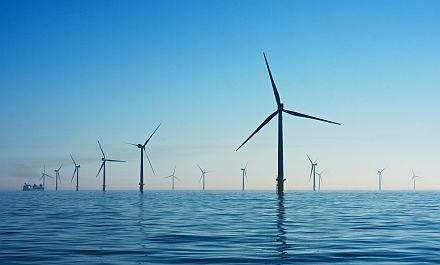Global Energy Industry
Energy issues present tremendous challenges and opportunities in both the fuels and power segments of the global energy industry. As regulators and policymakers reshape the global energy landscape of tomorrow, industry stakeholders must be prepared to confront historic and novel regulatory issues in order to capitalize on today s unprecedented opportunities in the fuels and power sectors.
The energy sector has five main characteristics. First, it is capital intensive. Second, it is specialized. Third, the energy sector is sensitive to variations of the price of commodities. Fourth, the sector is heavily regulated. Fifth, it is directly dependent on government take and governments tend to change the rules of the game depending on their needs. These characteristics make the energy sector a strong candidate for major disputes.
We represent energy clients in disputes over patents, environmental claims and investigations, regulatory, contract, tax and tariff stabilization, price review, operation of hardship provisions, and business tort issues in court cases, regulatory proceedings, and international arbitrations. We operate seamlessly across all our offices to deliver coordinated advice and representation in regulatory and legislative matters, litigation and arbitration, and transactional work that maximizes value for our broad range of clients.
McAllister, Davis & Goldstein has a vibrant energy practice representing an array of clients on transactions that span the globe. Lawyers in our energy practice have experience in oil, gas and petrochemicals; biofuels and renewable energy; and electric power.
Comprehensive Expertise
Our experience and successes span the vast landscape. Our lawyers provide businesses, investors and lenders across the energy arena with pragmatic, actionable legal advice addressing the range of issues they confront. We offer a global approach geared towards the satisfaction of our clients strategic goals.
Our approach is based on a full understanding of the underlying technical issues. It focuses on the goal to be reached and the shortest and most efficient way to reach it.
The lawyers are experienced in closing deals in a variety of situations, including restructuring workouts (both in and out of) bankruptcy and virtually any transaction structure that our clients wish to pursue.
Our diverse client base includes companies that develop, produce, transport, process and market energy.
We offer mining companies a spectrum of legal services from project financing to permitting for major developments. We advise our clients on exploration and production activities, refining and marketing of oil and its derivatives, pipelines and other related infrastructure, liquefied natural gas (LNG) and gas to liquids (GTL) projects, as well as on the myriad structural and contractual relationships used in the oil, gas and petrochemical industry.
Regional Expertise
We consistently handle a wide spectrum of complex transactions in Latin America, Russia, many other emerging countries and the US. The firm s international presence gives McAllister, Davis & Goldstein exceptional cross-border capabilities, as well as local law capacity in key markets.















